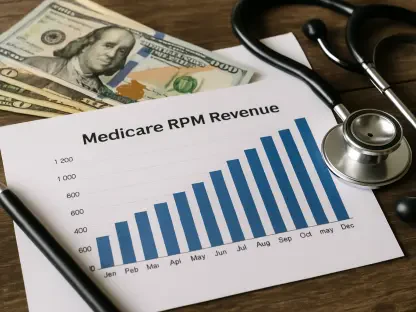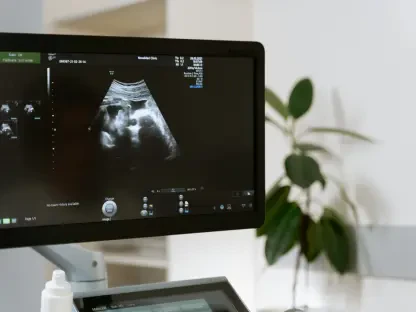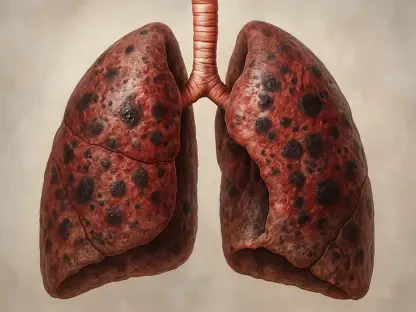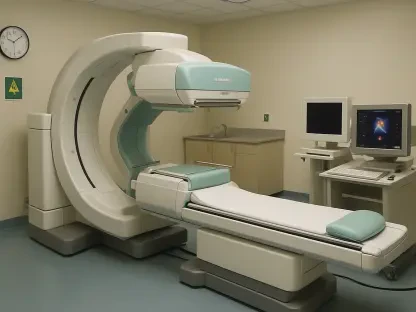The recent confirmation of Robert F. Kennedy Jr. as the Secretary of Health and Human Services (HHS) has sparked significant debate and concern within the healthcare community. Known for his controversial stance on vaccine safety, Kennedy’s appointment raises questions about the future direction of the nation’s healthcare policies and administration. His track record on vaccine misinformation is a cause of concern for many, and the impact it might have on public health initiatives remains to be seen. The dynamics of his leadership will further reveal how his ideological viewpoints translate into actionable policies within one of the most critical government agencies.
A Controversial Appointment
On Thursday, the U.S. Senate confirmed Robert F. Kennedy Jr. as the Secretary of HHS in a narrow vote of 52-48, with nearly all Republicans supporting and most Democrats opposing. Sen. Mitch McConnell of Kentucky was the only Republican who did not support Kennedy, voting alongside 47 senators who caucus with the Democrats. This appointment marks a significant moment for the HHS given Kennedy’s history of vaccine misinformation. Sen. Bill Cassidy, a Republican and a physician from Louisiana, expressed initial concerns but ultimately voted in favor after receiving assurances from Kennedy that he would adhere to established vaccine approval and safety systems.
As the Secretary of HHS, Kennedy will oversee one of the federal government’s largest and most influential agencies. His responsibilities include managing the Food and Drug Administration (FDA), the Centers for Disease Control and Prevention (CDC), and the Centers for Medicare & Medicaid Services (CMS). These agencies’ critical public health programs and initiatives impact millions of Americans. The substantial authority vested in this position underscores the high stakes involved in attaching someone with a contentious history to the helm.
Public Health Agenda and Chronic Disease
Kennedy has expressed his intentions to tackle the nation’s rising incidence of chronic diseases and combat the consumption of over-processed foods contributing to obesity. Under the initiative dubbed “Make America Healthy Again,” he aims to place significant emphasis on preventive health measures and promoting healthier lifestyles. This initiative aligns with his longstanding advocacy against over-processed foods and chronic disease.
However, Kennedy’s controversial views on vaccines have raised legitimate concerns about his ability to effectively steer essential public health initiatives. The medical community has widely criticized his stance on vaccine safety, fearing that his leadership could severely undermine public trust in vaccination programs. Balancing an ambitious public health agenda with the need to maintain confidence in vaccines will undoubtedly be one of Kennedy’s most critical challenges. This dilemma highlights the precarious position he must navigate in reconciling his personal beliefs with established scientific consensus.
Abortion Policy and Reproductive Health
In another controversial stance, Kennedy has pledged to support President Donald Trump’s policies on abortion. Despite his historical support for a woman’s right to choose, this shift in position is noteworthy as it could lead to increased scrutiny of mifepristone, a drug used in medical abortions and the management of miscarriages. The impact of this change could have profound implications for reproductive health services and access to abortion.
Kennedy’s evolving stance on abortion policy is likely to encounter robust opposition from reproductive rights advocates. Potential legal challenges may ensue as his administration seeks to increase regulation of reproductive health services, particularly concerning mifepristone. Both supporters and critics will closely scrutinize Kennedy’s moves, understanding the significant ripple effects they could have on reproductive rights and healthcare services in general. These impending battles will test the political and social resilience of his newly adopted policies.
Uncertainty Surrounding Medicare and Medicaid
Kennedy’s plans for Medicare and Medicaid remain quite ambiguous. During the confirmation process, he demonstrated a limited understanding of the complexities and funding mechanisms of these foundational programs. Health policy experts are skeptical about Kennedy’s potential influence in these areas. Paul Ginsburg, a senior scholar at the USC Schaeffer Center for Health Policy and Economics, suggested that significant decisions involving Medicare and Medicaid would predominantly remain under the authority of the White House and congressional Republicans.
Given Kennedy’s limited expertise in areas of Medicare and Medicaid, combined with his focus on chronic disease and diet, it is improbable that he will significantly shape these policies. However, congressional Republicans might spotlight Medicare and Medicaid as part of efforts to trim federal spending and tax reductions. Specific proposals, such as Medicaid funding caps or work requirements, could emerge, which would likely target reducing eligibility and costs. Observers will be keenly watching how Kennedy positions himself amidst these contentious debates.
Despite political resistance, cuts to Medicaid could be on the horizon, given its popularity and the adverse impact such reductions would have on hospitals, especially those struggling in rural areas. Enhanced eligibility requirements could be fortified, despite efforts by the Biden administration and hospitals to maintain funding and coverage. The result could be a significant strain on public health infrastructure, magnifying the impact of previous legislative decisions over which Kennedy will need to exert influence.
Potential for Bipartisan Collaboration
The recent appointment of Robert F. Kennedy Jr. as the Secretary of Health and Human Services (HHS) has ignited considerable debate and concern within the healthcare community. Known for his controversial views on vaccine safety, Kennedy’s position raises significant questions about the future trajectory of the nation’s healthcare policies and leadership. His history of spreading vaccine misinformation is worrisome for many, especially given the critical role of HHS in dealing with public health issues. The healthcare sector anxiously watches to see how Kennedy’s controversial perspectives might influence public health initiatives and strategies. The way his ideological beliefs are translated into practical policies will critically affect one of the government’s most essential agencies. The healthcare community is particularly focused on whether Kennedy’s views will steer the country’s health policies in a direction that prioritizes scientific evidence and public safety or veer towards his previously contentious stands. How he navigates these challenges will be closely monitored and debated.









